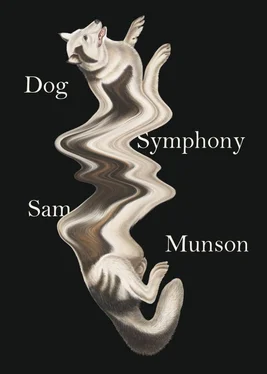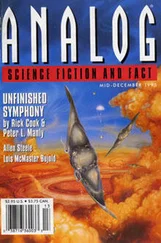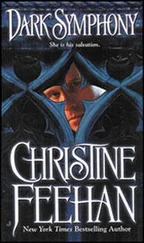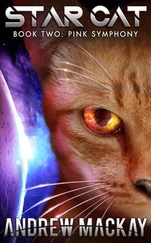I USED TO DRINK but I had to give it up, Luxemburg said. Her colleague chuckled. Fuck you, he replied, you never gave it up. I gave it up in theory, said Luxemburg, which is all that’s required. The rearview mirror showed me their rigid grins. I did recognize her companion: Victor, the boy from the lecture hall. The student who had assaulted me and the female shouter. He was also wearing a sky-blue uniform now, and was armed with a gun, a baton, and a whistle. His nameplate read KLEMPERER (it appeared, reversed, in the mirror, and I was able to decipher it). Luxemburg lifted one hand to show she meant no harm. Don’t worry, Professor, you have nothing to fear, she said, not from him and not from me. Luxemburg you can’t trust, said Klemperer. She has Gypsy blood. That’s not what we call them anymore, said Luxemburg.
A cage was fitted to the rear of the van’s cargo area. Brown stains streaked the floor beneath it. Luxemburg asked if I was cold. I told her no. She twisted and leaned into the rear cabin and raised a thermos to my lips, lifting it so I could drink. It did not contain coffee, as I expected, but juice, papaya juice. To my own surprise, I drained the thermos without stopping. She held it up the whole time, Luxemburg watching me drink. You need to keep your energy up, she said. Klemperer slapped the radio. Luxemburg warned him not to break it or it would come out of his pay. Between them, on the front floor of the cab, a shovel lay rattling as we drove. We don’t earn much, she said to me, smiling slightly, we do this work for other reasons. Speak for yourself, said Klemperer.
They didn’t touch me, they didn’t beat me, they simply handcuffed me and lifted me from the ashen earth near the train tracks into the backseat of the van, locked the door, and started driving. I was too tired to respond with anything but compliance. Without a word, we passed into the null greenery that surrounds and insulates the southern capital. Klemperer, at last, found two radio stations that were broadcasting clearly and switched between them, news and jazz, back and forth, until Luxemburg told him to stop, to pick a fucking station and stay there. Klemperer ignored her and asked me, instead, if I wanted a cigarette. This I accepted. See, Professor, no hard feelings, said Klemperer. He twisted back — eyes on the road, asshole, said Luxemberg — and shook one from his pack. The golden word MACEDONIA encircled the filter. I took it in my lips. Luxemburg lit it. Smoke streamed toward the open windows.
The night dogs had gone, yes, but very few humans appeared on the streets. Almost none in the scrawny suburb we passed through. The buildings low and red, the pedestrians all old, neatly dressed in a clerical, timid way, their hair white or nonexistent, the outlines of their bodies blurred with age. At every door, with no exceptions, meat and water bowls and shrines above them. The shovel rattled on.
This is all going to be over soon, Professor, said Klemperer, I promise, so just try to relax. I’d offer you weed but we can’t smoke it on the job. Sudden laughs choked me, stopped me from answering. I closed my mouth, clamped my teeth together, I rocked on the jump seat. Now, Professor, there’s no need for that, Klemperer went on. Luxemburg said: Can’t you see he’s upset, asshole? Klemperer, his eyes canine and moist in the mirror, apologized. I didn’t mean anything by it, Professor. Ruts opened in the road beneath us. Luxemburg’s black boots reflected the empty, tree-edged sky flowing outside, in the so-called world. Dampness leaked through my shirt. He’s all sweaty, said my benefactor. No kidding, said Klemperer. And it’s going to be a hot one today, right, Professor? Luxemburg was lifting another thermos. I leaned forward; she took the butt from my lips, and replaced it with the thermos. This one held cold, sweet tea, and I drank it with the same speed I had consumed the papaya juice. A news announcer started to speak, a woman with a sculptured voice, but Klemperer switched back to the jazz station before she could finish a word.
An abrupt chain-link fence rose from the auburn dirt, and Klemperer slowed. When we stopped, Luxemburg got out and opened the door for me, watched me step down. I stumbled as I made contact with the earth, and she grabbed my upper arm to keep me from falling. Klemperer, without preamble, climbed out and unzipped his fly. The air smelled like rue and cortaderia, as well as asphalt and exhaust. DSP signs (sky-blue letters on white) bolted to the fence rattled in the wind. In the fence, a gate, on the gate a padlock, beyond the gate, with no visible preamble, a beaten dirt track began in the tangle of rue. I could see nothing beyond the waving plants except taller grasses deeper into the field. Klemperer’s urine splashed luxuriously.
In the van, a service radio chimed. Luxemburg leaned in through the passenger window to answer it. Static blurred what her fellow officer or superior was saying (I imagined, stupidly, that it was Sanchis Mira, I summoned up that mighty mustache) but she understood it or pretended to, and she assented. Yes, roger that, she said. Roger that, cried Klemperer, as he shook his dick (I’d turned my head to keep it out of my vision, but I saw his foreskin sliding back into place over his broad, bright-purple glans). Luxemburg trotted around the blue van, now carrying the shovel, her whistle thumping lightly against her chest. She unlocked the padlock and Klemperer motioned me to walk forward. I had reached the door when he said, Okay, that’s good. Luxemburg came up behind me. I thought she was going to hit me with the shovel, but instead I heard its blade strike the earth and felt her fingers on my wrists. The handcuffs opened. Klemperer told me to pick up the shovel and get walking. I didn’t obey, at first, I was staring at the waving leaves of a cinquefoil plant next to his spreading urine. Come on, Professor, get going, said Klemperer. He unholstered his gun. The metal sighed against the leather. Two wet spots darkened the gusset of his sky-blue pants. The serrated, silvered leaves trembled. The dust soaked up his urine.
Klemperer, as he shuffled along behind me, hummed a phrase from the Dog Symphony. More than twelve hours had passed without my hearing it, I calculated as I inhaled the sweet, high smell of the rue, the grass growing among its stalks, the earth itself. As I followed the single, sinuous path, I imagined we were approaching a facility, one that resembled the Parque Presidente Sarmiento, with its swimming pool (I don’t know why I thought there would be a swimming pool but I did, I unquestionably did) and its bizarre red-brick colonnade. I called over my shoulder (the shovel’s still-cool edge brushed my face) to ask Klemperer where we were going. He said not to worry, that this was Department property and no one would bother us, we’d be finished here in a few minutes. The grasses rose higher and higher, and I saw that we’d reached a deep thicket of Cortaderia selloana, the famous Argentine pampas grass. Watch out for the Pampas hares, cried Klemperer. I laughed, and my laugh vanished like smoke under the faultless sky. No clouds, no birds, not a single plane visible, just a vacant, hard blue that the tips of the tallest grasses seemed to touch.
Let no one say that Pasternak regards himself as above manual labor. I had a shovel. This meant: digging. The ground sloped, this I knew too, though I could not tell if it sloped upward or downward. At times it seemed we were ascending and at times descending. The unchanging, smoothed sky prevented me from developing any real idea. Klemperer called me over; he kept the gun ready. The grasses closed above us, only a narrow, oblong strip of sky could be discerned.
I used the shovel edge to chop down the harder stems blocking our path and Klemperer called out approvingly. That’s good thinking, Professor, no wonder you did so well in academia. He understood, of course, what the shovel meant to me, what I knew it to mean. He understood as well the absurd and obscene fantasies that it inspired. And he regarded these fantasies as nothing. He even began to whistle again, to feign absorption in his whistling, rigidly keeping his face averted from me, the shovel in my hand, alive with sun as his whistles reached an intolerable fluidity and pitch — his mastery of the music was incredible; a born whistler, a man whose whistling outstripped all his other talents. He did not stop whistling as he unzipped again and started to piss. This time he fully turned his back, lifting his chin skyward and whistling. His cap fell to the grass and revealed the crown of his head. A nude pink spot among the luxurious hair surprised me. And I did nothing, I hacked away at a thick stem with my shovel. The shaft raised welts on my palm, and these had already begun to blister. I watched Klemperer piss, I heard the splashing urine form a counterpoint to his mighty whistling, and the grave, the earth, closed over my head, Pasternak — that’s what you thought.
Читать дальше












